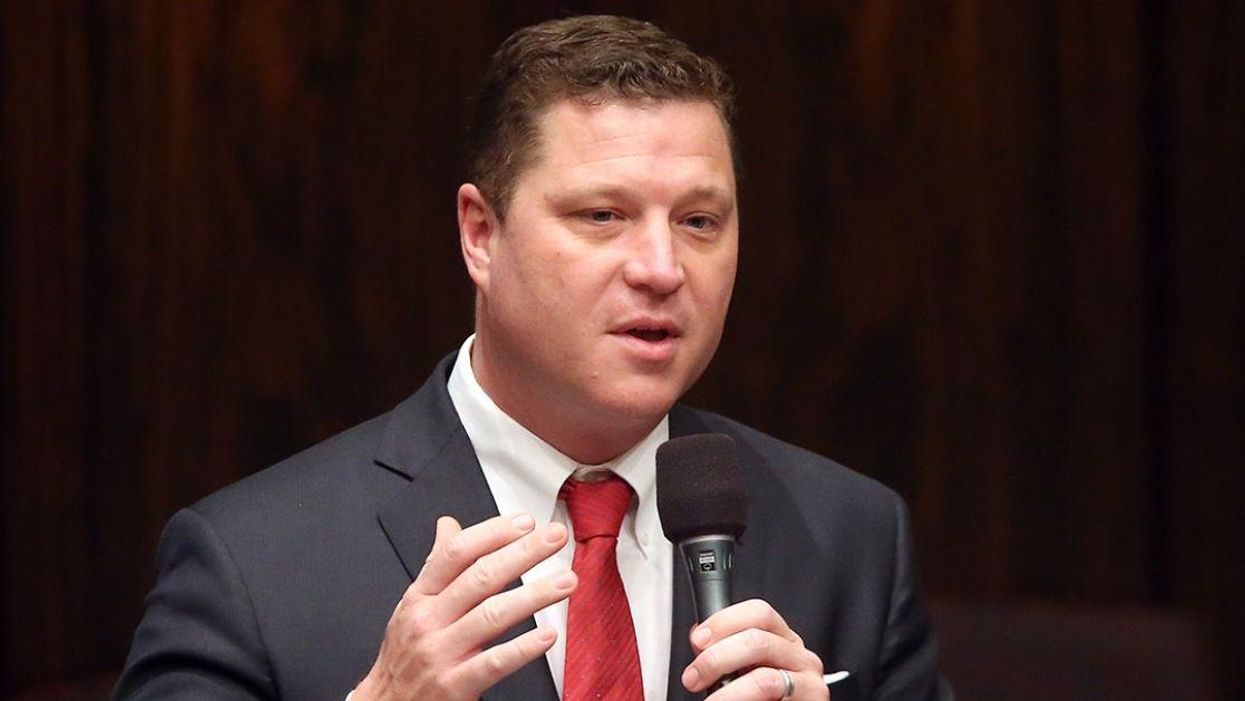Florida Senate Republican Jeffrey Brandes is taking some serious heat for a bill he filed in the middle of last week.
Brandes, who represents District 24 near Tampa, introduced or co-introduced nearly 40 bills so far this year, but it's SJR854 that nabbed people's attention. The bill seeks to block felons and other "hard-to-hire employees" from getting the state's newly passed $15 minimum wage.
The proposal, which you can read in full here, seeks:
"to authorize the Legislature to provide a reduced minimum wage rate for prisoners in the state correctional system, for employees convicted of a felony, for employees under 21 years of age, and for other hard-to-hire employees, etc."
In other words, felons, anyone who is under 21 and anyone else a company deems "hard to hire" are exempt from earning the new minimum wage of $15 per hour. There is no mention of any specific criteria for being "hard to hire"—the bill seems to leave that designation to the employers discretion.
He believes those deemed "hard to hire" should be paid a "training wage" regardless of whether or not they are actually in training, require training, or are in fact in leadership/managerial positions and are the ones doing the training.
According to Brandes, rather than hurting these already at-risk groups, his bill will help them.
Brandes claims employers will only employ "hard to hire" people if they are allowed to pay them less than other workers. He also believes raising the minimum wage will cause unemployment rates to go up as employers fire felons, people under 21, etc...
When asked if he thought his bill would trap "hard to hire" people in a permanent cycle of being underpaid, Brandes dismissed those concerns outright. According to him, the exemption isn't meant to be permanent.
There is nothing written in this bill reflecting any sort of time limit on this wage ineligibility.
Senator Brandes claimed he would be willing to propose another bill placing a time limit on these "training wages" if his current bill passes as opposed to simply amending it now. There is always the possibility a follow-up bill never materializes or does not pass.
He defended his position repeatedly on social media
Multiple independent organizations did studies with results that directly contradict the ideas Brandes is espousing.
Research group "Integrity Florida" published these findings:
"Economists cite several reasons why increases in the minimum wage, which raise employers' cost, generally do not cost jobs. Increased pay adds money to workers' pocketbooks and allows them to buy more goods and services, creating higher demand, which in turn requires hiring more workers."
"The higher wage may make it easier to attract applicants and results in less turnover of workers, lowering costs of employers."
"Our examination of employment statistics in states found no evidence of employment loss in states that have increased the minimum wage and more evidence that suggests employment increases faster when there is an increase in the minimum wage."
Not everyone agrees the move is motivated by benevolence.
The Appeal called it part of Florida's "open contempt" for the will of the people.
"The Florida legislature has long treated grassroots ballot initiatives with open contempt."
"In 2017, after more than 70 percent of state voters elected to legalize medical marijuana, state lawmakers responded by temporarily making it illegal to smoke medicinal weed."
"In 2018, when a supermajority of Floridians voted to return voting rights to at least 1.4 million formerly incarcerated people, the GOP-dominated legislature passed a glorified poll tax that made sure that 800,000 of those people remained ineligible to vote."
"This week, the state Republican Party—dominated by pro-Trump apparatchiks and a smaller Libertarian-minded wing—has launched its plan to kneecap the minimum wage increase, which passed with over 60 percent approval."
Twitter remains similarly unconvinced.
Brandes' bill is still under consideration in the Florida Senate.














 @DuncanCecil/X
@DuncanCecil/X @@realDonaldTrump/Truth Social
@@realDonaldTrump/Truth Social @89toothdoc/X
@89toothdoc/X @xray_media/X
@xray_media/X @CHRISTI12512382/X
@CHRISTI12512382/X
 @sza/Instagram
@sza/Instagram @laylanelli/Instagram
@laylanelli/Instagram @itssharisma/Instagram
@itssharisma/Instagram @k8ydid99/Instagram
@k8ydid99/Instagram @8thhousepath/Instagram
@8thhousepath/Instagram @solflwers/Instagram
@solflwers/Instagram @msrosemarienyc/Instagram
@msrosemarienyc/Instagram @afropuff1/Instagram
@afropuff1/Instagram @jamelahjaye/Instagram
@jamelahjaye/Instagram @razmatazmazzz/Instagram
@razmatazmazzz/Instagram @sinead_catherine_/Instagram
@sinead_catherine_/Instagram @popscxii/Instagram
@popscxii/Instagram
